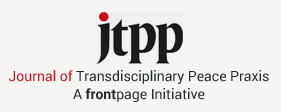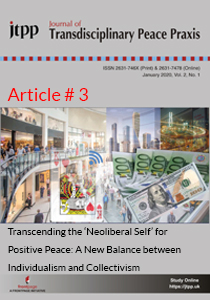Description
Transcending the ‘Neoliberal Self’ for Positive Peace: A New Balance between Individualism and Collectivism
Ayça Demet Atay (Assistant Professor at the Department of Journalism, Near East University, North Cyprus)
Peace refers to a socio-economic, political and cultural order. In this article, along with Johan Galtung’s conceptualisation of ‘positive peace’, the author defines ‘peace’ as reaching a peace culture, where not only direct violence, but also forms of structural and cultural violence are overcome.
As an alternative to the neoliberal ideology of global capitalism, which has come to dominate the common-sense understanding of ‘peace’, positive peace must be a horizontal, egalitarian, and classless society, a society of freedom, equality and solidarity. In individualism/collectivism theoretical framework, freedom and equality are thought to refer to two distinctively different types of social organisation, namely, individualism and collectivism, based on two different types of self-construal, independent or autonomous versus interdependent or relational self. Mainstream social psychology presumes that autonomy and relatedness are mutually exclusive categories, which may not, however, be the case. For reaching positive peace, we need a new balance between individualism and collectivism.
In this paper, the author argues that such a balance requires a relational ontology and a new form of self-other relationship, which encompass autonomy and relatedness. For this reason, the author first discusses the atomistic self-construal of neoliberalism and alternative indigenous traditionism of relational ontology. Next, the author presents the ‘autonomous-related self’ construal, which has emerged in urban centres of the non-Western world. This alternative self-construal points to an individual who is both autonomous and caring for her/his collectivity. This autonomous-relational self presents a dialectical synthesis between individualism and collectivism.





